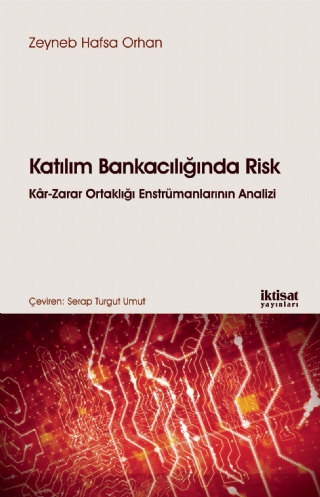Accounting, Finance and Banking \ 1-1

In this work, which is the first book in the "What You Need to Know in 40 Questions" series, consisting of books that provide practical, short and qualified answers to the questions of the reader about the practices and institutions in Islamic economics, information about Islamic banking in the world and the basics of the system known as participation banking in our country is presented in a theoretical way around 40 questions. It is given in a format that can be easily understood by people of all levels, rather than depth.
While determining the 40 questions in this book, it has been given importance to include all possible aspects of understanding participation banking and to take into account personal and social experiences with the questions asked so far. During the preparation of the answers to the questions, the experiences, thoughts and concerns of the individuals working in the sector, especially individual customers who have contact with participation banking, as well as the information obtained from the instructors and written materials were taken into account. In order not to tire the reader, a maximum of 400-500 words of explanation is given for each answer. In order to better understand the explanations, figures and figures were used where deemed appropriate. The main feature that distinguishes the book from the existing literature is that the segment it addresses is wider.
While determining the 40 questions in this book, it has been given importance to include all possible aspects of understanding participation banking and to take into account personal and social experiences with the questions asked so far. During the preparation of the answers to the questions, the experiences, thoughts and concerns of the individuals working in the sector, especially individual customers who have contact with participation banking, as well as the information obtained from the instructors and written materials were taken into account. In order not to tire the reader, a maximum of 400-500 words of explanation is given for each answer. In order to better understand the explanations, figures and figures were used where deemed appropriate. The main feature that distinguishes the book from the existing literature is that the segment it addresses is wider.

In this book, which is the seventh book in the "What You Need to Know in 40 Questions" series of books that provide short, practical and qualified answers to the questions of the reader about the practices or institutions related to Islamic economics, the subject of murabaha is handled around 40 questions from various aspects.
Murabaha contract is the type of contract that is mostly applied in the interest-free banking sector, which has been operating in different countries of the world since the 1970s, and largely determines the direction of the interest-free operation. In this context, examining the historical development, stages, problematic points and discussions of such a process will provide the reader with an important background in the field of Islamic economics and especially modern contracts. The questions addressed not only focus on the practical aspects of murabaha, but also aim to reveal the background of the process in many ways. In this respect, the content of the book includes the technical, fiqh, legal, economic and intellectual aspects of the subject.
Murabaha contract is the type of contract that is mostly applied in the interest-free banking sector, which has been operating in different countries of the world since the 1970s, and largely determines the direction of the interest-free operation. In this context, examining the historical development, stages, problematic points and discussions of such a process will provide the reader with an important background in the field of Islamic economics and especially modern contracts. The questions addressed not only focus on the practical aspects of murabaha, but also aim to reveal the background of the process in many ways. In this respect, the content of the book includes the technical, fiqh, legal, economic and intellectual aspects of the subject.

In this book, which is the sixth book in the "What You Need to Know in 40 Questions" series of books that provide short, practical and qualified answers to the questions of the reader about the practices or institutions related to Islamic economics, the subject of sukök and the stock market is discussed around 40 questions from various aspects.
Sukuk and stock market transactions, which are a special method of traditional securitization, are among the most important financial engineering issues of our time. As the issue is current, it is also quite intricate, comprehensive and variable. For this reason, the book presents these two subjects in an up-to-date framework that can be understood by people of all levels, with its fluent and plain language. The most important feature of the book compared to its counterparts is that it not only examines the subject from a descriptive and technical point of view, but also criticizes it in terms of jurisprudence.
Sukuk and stock market transactions, which are a special method of traditional securitization, are among the most important financial engineering issues of our time. As the issue is current, it is also quite intricate, comprehensive and variable. For this reason, the book presents these two subjects in an up-to-date framework that can be understood by people of all levels, with its fluent and plain language. The most important feature of the book compared to its counterparts is that it not only examines the subject from a descriptive and technical point of view, but also criticizes it in terms of jurisprudence.

In the commercial relations that human beings have entered, they can pay the price of the products they buy in cash, or they can pay them in deferred payment by way of borrowing. Today, the majority of commercial relations are made by borrowing method and the maturity of the debts in question is long, causing the person or institutions in the position of creditors to have cash problems. The creditor party sells the receivables in question, which we expect to be collected from the debtor, in order to meet his cash needs and to eliminate the loss in the best way possible due to the debtors' insolvency. The book evaluates this practice, which has become widespread because it is a current issue that concerns the majority of the society, in terms of Islamic law. The amount of debt in the economies has increased as a result of the fact that commercial dyestuffs are not based on cash payments and are carried out mostly by borrowing. Due to the effects of economic crises and other factors, difficulties were experienced in repayment of debts and the loss of the creditor came to the fore. Various methods have been used to eliminate this damage. One of the theories operating in this context is the asset management companies that come to the forefront with their assignment of receivables. The purpose of this book, which deals with the assignment of receivables practices performed by asset management companies, is to determine the principles and provisions of Islamic law that are revealed from the subject of assignment of receivables, to analyze the activities of asset management companies in the field of application, and finally to evaluate the current practice according to the principles of Islamic law.
In the book, the sources of the Shafii, Hanteli, Maliki and Zahiri sects were also examined in order to evaluate the views put forward about the receivables sales transactions as the basis, as well as the views of the Hanafi sect.
In the book, the sources of the Shafii, Hanteli, Maliki and Zahiri sects were also examined in order to evaluate the views put forward about the receivables sales transactions as the basis, as well as the views of the Hanafi sect.
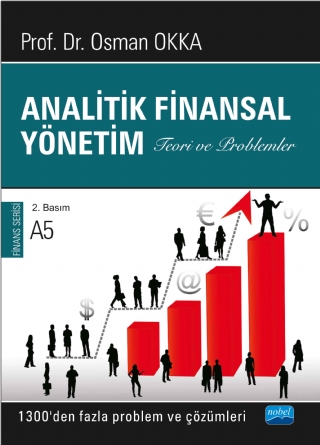
Although there are publications on verbal financial management in Turkey, there is a great deficiency in digital financial management. This study, which is prepared to compensate for this deficiency to some extent, includes more than 1,300 solved problems and tries to ensure that finance is experienced live in the company. Today, financial management education in our universities should be numerical, not verbal, as a requirement of the job. It is also clear that a financial education that is not pedagogically involved in company activities, cannot analyze and evaluate financial events, and is not effective in determining financial policies is not sufficient. The purpose of this book; It is to show the student and the reader how to solve simplified financial problems and to give sufficient financial knowledge on the relevant subject. While the theoretical information in the book was aimed to be at the basic level, it was thought to be at a very advanced level and the theoretical knowledge was concentrated in the book. The second purpose of the book is to prepare for the Financial Management Case Studies book. At the end of the book, the problems were emphasized and after the questions were solved, different orientation questions were asked for the student to test himself.
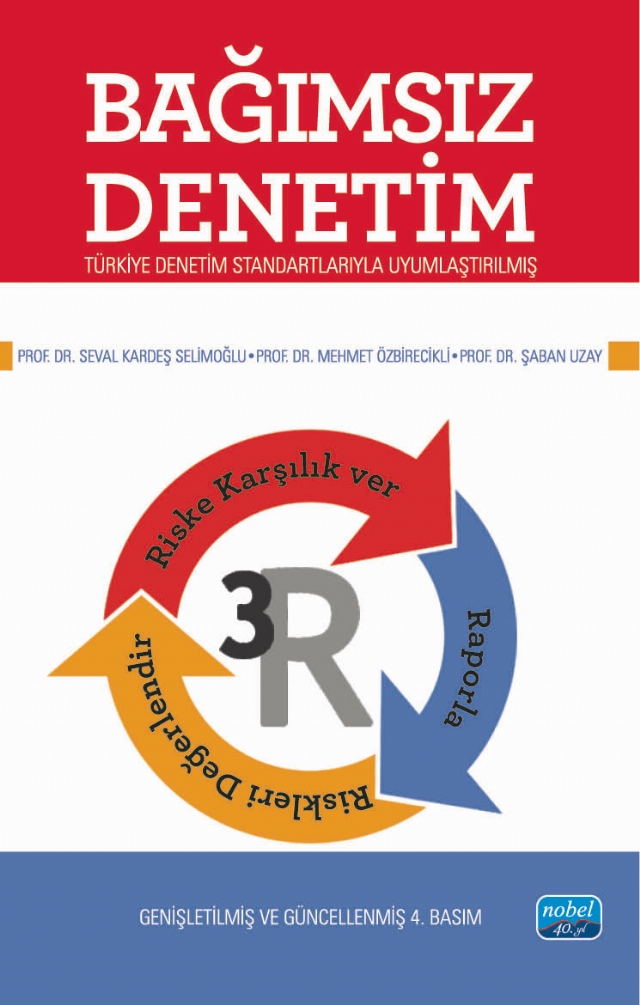
Auditing is an important area of expertise that investigates the claims of the management regarding the financial statements prepared by the accountant and thus helps to present accurate and reliable financial information to the relevant public. Independent audit is a requirement of the principle of public disclosure in the capital market, and in addition to Public Beneficial Economic Institutions (PIE) in Turkey, among capital companies that exceed certain sizes (such as sales revenue, asset size, number of employees) with criteria re-determined every year and with the decision of the Council of Ministers. is a legal requirement. Although independent auditing has been known in Turkey since 1987, when the first regulations were made, it was with the new Turkish Commercial Code published in 2011 that large segments met with independent auditing.
Independent auditing standards are the guide of the auditor and form the infrastructure of a quality audit work. In our book, planning an audit process, performing audit programs and reporting the results are explained on the basis of auditing standards. In addition, the emergence of the need for auditing, the national and international rules that guide the audit, the issues of fraud auditing, a summary of auditing standards and an example of audit planning are presented in our book.
Our book; Besides the independent audit practitioners, it has content that can provide guidance and benefit to the professional accountants / candidates preparing for the exams to become independent auditors, and related university students, each of whom is a potential independent auditor candidate of the future.
Independent auditing standards are the guide of the auditor and form the infrastructure of a quality audit work. In our book, planning an audit process, performing audit programs and reporting the results are explained on the basis of auditing standards. In addition, the emergence of the need for auditing, the national and international rules that guide the audit, the issues of fraud auditing, a summary of auditing standards and an example of audit planning are presented in our book.
Our book; Besides the independent audit practitioners, it has content that can provide guidance and benefit to the professional accountants / candidates preparing for the exams to become independent auditors, and related university students, each of whom is a potential independent auditor candidate of the future.

The stock market, which contains many transactions and applications, is important for Islamic economic studies.
As a matter of fact, the stock market, in terms of having shares, debt instruments, futures and options, precious metals and precious stones markets and many products and contracts belonging to these markets it has a rich structure in terms of subject for Islamic economic studies. Although the transactions applied in the stock market are based on a legal basis, the implementation of these transactions brings with it many fiqh issues and problems. The same is true for the short selling transaction, which is one of these transactions. Because the short selling process includes many fiqh issues. For this reason, the aim of the study is to reveal the technical implementation of the short selling process in the stock market.
and to make a fiqh evaluation.
The book deals with the aspects of short selling as a financial product that need legal analysis. In this regard, the subject; It examines the subject, purpose, importance, method and resources of the research in three parts together with the introduction part. In the first chapter, various concepts that can be encountered in short selling transactions are included and the issues that arise in the jurisprudence evaluation of the transaction are briefly touched upon. In the second part of the research, the definitions made for the short selling transaction are classified and discussed, and then the detailed application of the transaction, its types and its economic effects on the market are mentioned. In the third part, four subjects determined in terms of fiqh are discussed.
The evaluation of the process in terms of Islamic law is given.
The book constitutes an important contribution to the Turkish literature, especially considering the lack of a Turkish study dealing with the fiqh aspect of the subject.
As a matter of fact, the stock market, in terms of having shares, debt instruments, futures and options, precious metals and precious stones markets and many products and contracts belonging to these markets it has a rich structure in terms of subject for Islamic economic studies. Although the transactions applied in the stock market are based on a legal basis, the implementation of these transactions brings with it many fiqh issues and problems. The same is true for the short selling transaction, which is one of these transactions. Because the short selling process includes many fiqh issues. For this reason, the aim of the study is to reveal the technical implementation of the short selling process in the stock market.
and to make a fiqh evaluation.
The book deals with the aspects of short selling as a financial product that need legal analysis. In this regard, the subject; It examines the subject, purpose, importance, method and resources of the research in three parts together with the introduction part. In the first chapter, various concepts that can be encountered in short selling transactions are included and the issues that arise in the jurisprudence evaluation of the transaction are briefly touched upon. In the second part of the research, the definitions made for the short selling transaction are classified and discussed, and then the detailed application of the transaction, its types and its economic effects on the market are mentioned. In the third part, four subjects determined in terms of fiqh are discussed.
The evaluation of the process in terms of Islamic law is given.
The book constitutes an important contribution to the Turkish literature, especially considering the lack of a Turkish study dealing with the fiqh aspect of the subject.

In this work, which is the fifth book of the Pocket Books series, which covers the basic institutions and issues of Islamic economics, the subject of value is tried to be explained in a content that can be understood by people of all levels, together with its theoretical and practical dimensions. In today's world, an economic understanding that we call capitalism, which has become global, seems to be universal and without alternatives, is dominant. Therefore, as people born into the modern world, we establish our economic relations within the limits set for us by capitalist production, consumption and distribution techniques. We think that we have no alternative but to speak the language of the dominant economic understanding and produce practice. We can attribute a suprahistorical role to these concepts by ignoring that the settlement of some concepts in the society in this created language has a historical process and context and that they continue to undergo a continuous change and transformation of meaning. This attitude makes us passive in economic relations and ties our hands in the construction of alternative economic systems. This work is part of the Pocket Books series based on the reinterpretation of basic concepts in economics. With this study, which deals with the concept of value, one of the most important concepts of economics, the meaning of a "value-free" economic thought based on unquestioning acceptance for many of us, the effect of this thought on our daily relations and the construction of a value-laden economic system beyond the current economic understanding. starting points are discussed.
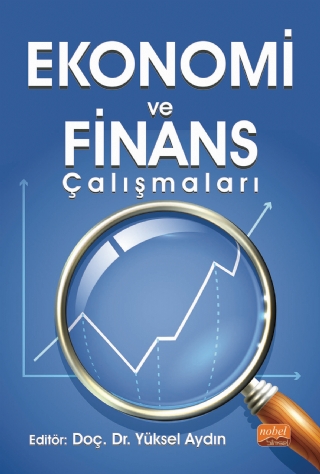
Evaluating the innovations provided by digital transformation in the economy and finance sector is one of the most important issues. Today, increasing economic relations between countries constitute the structure that develops the financial sector. It is seen that the various dynamics that occurred in different periods have a quality that will affect many countries, and that they have a slowing effect on economic and financial development from time to time. Understanding the place of global trends in economic and financial theory in this developing structure draws attention in terms of ensuring effectiveness in policy measures. In this context, current developments in the world economy and finance sector have been the main point of view in the preparation of this book. Our book, which includes theoretical and applied studies, consists of two main parts. In our book, which includes a total of 23 chapters, each chapter has been prepared by academics who are experts in their fields. It is aimed that this book will contribute to researchers and students working in the field of economics and finance.

Islamic economy/economics, which emerged as a concept in the 1930s, started to develop theoretically after the 1970s and became an academic field of study. This work presents the positions of the basic micro and macro issues of economics in this new field of study, both theoretically and
It is intended to demonstrate in practical terms. In this context, subjects such as methodology, political economy systems, state-market relations, fiscal and monetary policy, consumer and producer analysis, institutions are included. This book, which is structured to be used as an introductory one-semester course book in Islamic economics in terms of subject progression and segmentation, is also preferable for anyone interested in the subject because it does not have a heavy academic language. With the hope that it will contribute to the field as an original work written in Turkish, as well as related translation works published by İktisat Publishing until today...
It is intended to demonstrate in practical terms. In this context, subjects such as methodology, political economy systems, state-market relations, fiscal and monetary policy, consumer and producer analysis, institutions are included. This book, which is structured to be used as an introductory one-semester course book in Islamic economics in terms of subject progression and segmentation, is also preferable for anyone interested in the subject because it does not have a heavy academic language. With the hope that it will contribute to the field as an original work written in Turkish, as well as related translation works published by İktisat Publishing until today...
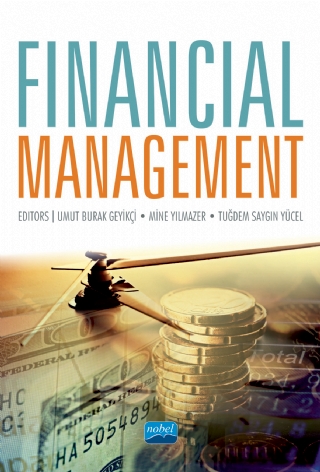
This is a precious book for the students of finance, economics and business administration who want to gain knowledge on financial institutions, calculations and markets. On the other hand I strongly recommend this book who want to learn these complicated topics in an easy way.
Dr. Mahfi Eğilmez
This book covers all topics related to financial management. The most important feature of the book is that it contains plenty of examples on each subject in order to facilitate students' comprehension. In addition, it will be easier to understand the unit as a whole with the end of the section evaluations consisting of classic and test questions. Many factors have been instrumental in the emergence of this book. First of all, there are over a hundred business management and similar departments providing education in English at universities in Turkey. Among the books taught in these schools, the number of financial management books written in English is extremely limited. Second, the English financial Management books used in these schools are of UK and North American origin. So theories, examples, practices are largely related to these countries. Third, financial management books written and sold in the UK and North America are very expensive, which is quite high for students studying in Turkey. Fourth, as a developing country, financial practices in Turkey, the financial structures and environment of companies are quite different from developed countries.
The challenges mentioned above are the main sources of motivation for writing this book. The faculty members involved in the book's writing are people who have experienced those challenges. All have a long educational background and besides they are involved in the financial markets and some of whom are in decision-making positions. Each of the sections contains real world and Turkey examples, values, current financial practices and new theories. The price of this book has been kept as low as possible. Thus, it is aimed to contribute to both our students and the economy of the country.
Financial managers, students, academicians and other interested in the financial sector will benefit from the theories, examples, problem solutions and recommendations contained in the book. We wish the book to be useful to students and all interested in finance.
Dr. Mahfi Eğilmez
This book covers all topics related to financial management. The most important feature of the book is that it contains plenty of examples on each subject in order to facilitate students' comprehension. In addition, it will be easier to understand the unit as a whole with the end of the section evaluations consisting of classic and test questions. Many factors have been instrumental in the emergence of this book. First of all, there are over a hundred business management and similar departments providing education in English at universities in Turkey. Among the books taught in these schools, the number of financial management books written in English is extremely limited. Second, the English financial Management books used in these schools are of UK and North American origin. So theories, examples, practices are largely related to these countries. Third, financial management books written and sold in the UK and North America are very expensive, which is quite high for students studying in Turkey. Fourth, as a developing country, financial practices in Turkey, the financial structures and environment of companies are quite different from developed countries.
The challenges mentioned above are the main sources of motivation for writing this book. The faculty members involved in the book's writing are people who have experienced those challenges. All have a long educational background and besides they are involved in the financial markets and some of whom are in decision-making positions. Each of the sections contains real world and Turkey examples, values, current financial practices and new theories. The price of this book has been kept as low as possible. Thus, it is aimed to contribute to both our students and the economy of the country.
Financial managers, students, academicians and other interested in the financial sector will benefit from the theories, examples, problem solutions and recommendations contained in the book. We wish the book to be useful to students and all interested in finance.
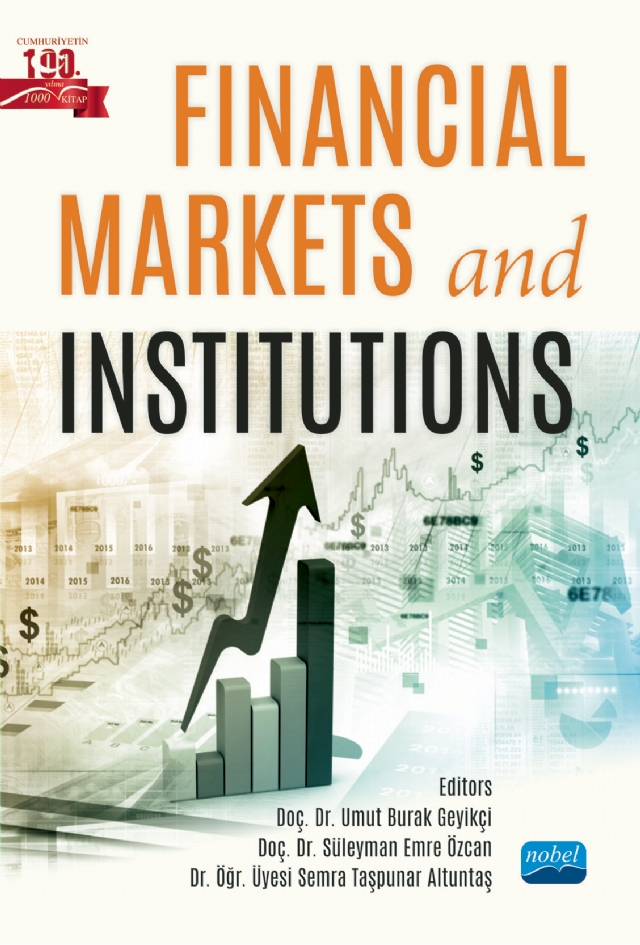
This book covers all topics related to financial markets. Financial Markets and Institutions offers a distinct analysis of the risks faced by investors and savers interacting through financial institutions and financial markets. It also introduces strategies that can be adopted to control and manage risks. Each chapter is further enriched by providing topical coverage in Turkey context, followed by questions and mini-cases at selected chapters. Each chapter first gives an overiew and identifies learning objectives. Furthermore, we make abundant use of graphs and tables to give relevant people a comprehensive overview of the Turkey financial system.
This textbook's strong market focus and superior pedagogy are combined with a complete digital solution to help students achieve higher outcomes in the course. Combining theory, data and policy, this successful book examines and explains financial markets, financial infrastructures, financial institutions and the challenges of financial supervision and competition policy.
This textbook's strong market focus and superior pedagogy are combined with a complete digital solution to help students achieve higher outcomes in the course. Combining theory, data and policy, this successful book examines and explains financial markets, financial infrastructures, financial institutions and the challenges of financial supervision and competition policy.
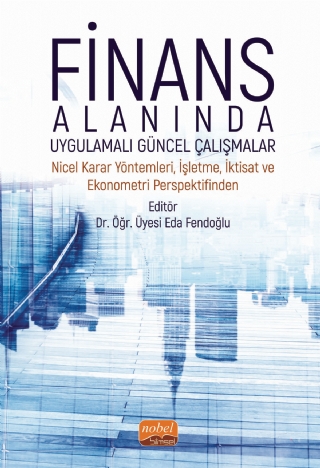
Finance is a branch that examines money management, as well as financial systems consisting of banks, loans, assets, investments and debts, and represents the working process of these systems. Today, finance has become an important part of sustainability as well as its role as an intermediary in the economic system. Therefore, due to the increase in the importance of investment in the realization of sustainable development and the provision of information technology for new and environmentally friendly energy systems, the computation of many criteria and alternatives, and the complexity of risk, and the use of programs that make faster and easier calculations, studies in the field of finance are now in the world. is of great importance. For this reason, this book, with the efforts of thirteen scientists in the field of Finance; Quantitative decision methods, current analyzes from the perspectives of economics, business and econometrics, and extensive literature links, as well as original studies consisting of eleven chapters that bring together theory and practice.
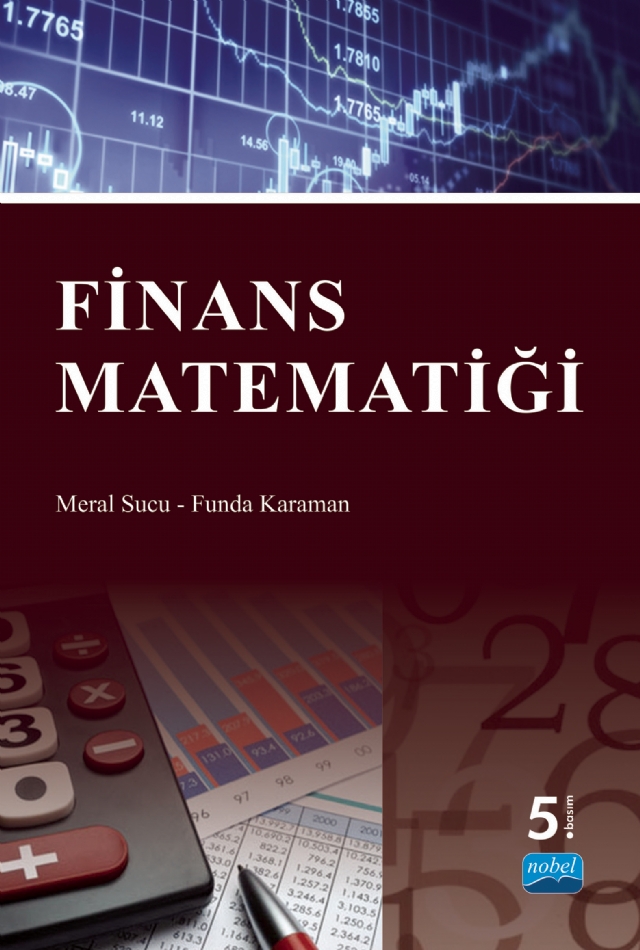
This book has been prepared as a textbook for Finance Mathematics courses given in Economics, Business Banking, Finance and Actuarial departments of universities. It will be a resource book that can be used by candidates who will take the Capital Markets Board (CMB) Licensing exams and Actuarial exams.
The topics in the book were written in a simple language, and it was tried to ensure the intelligibility of the topics with many examples. With the different exercises given at the end of each chapter, the knowledge was reinforced.
The book consists of six chapters. In the First Chapter, time value of money, interest problems are discussed and interest and discount types encountered in practice and academic studies are given in detail. The subject of definitive annuities is explored in Chapter Two of the book. In Chapter Three, annuities with variable payouts, which can be made at different frequencies from the interest conversion period, are discussed. In the fourth chapter of the book, the debt payment methods, Depreciation and Debt Payment Fund methods, are examined in detail and the relationship and differences between them are emphasized. In the Fifth Chapter, commonly used investment instruments in financial markets are introduced and the valuation of these products is examined. In Chapter Six, derivatives markets and derivative products are discussed in detail and models used for pricing derivatives are explained.
The book will be useful as a textbook for people and students interested in finance.
The topics in the book were written in a simple language, and it was tried to ensure the intelligibility of the topics with many examples. With the different exercises given at the end of each chapter, the knowledge was reinforced.
The book consists of six chapters. In the First Chapter, time value of money, interest problems are discussed and interest and discount types encountered in practice and academic studies are given in detail. The subject of definitive annuities is explored in Chapter Two of the book. In Chapter Three, annuities with variable payouts, which can be made at different frequencies from the interest conversion period, are discussed. In the fourth chapter of the book, the debt payment methods, Depreciation and Debt Payment Fund methods, are examined in detail and the relationship and differences between them are emphasized. In the Fifth Chapter, commonly used investment instruments in financial markets are introduced and the valuation of these products is examined. In Chapter Six, derivatives markets and derivative products are discussed in detail and models used for pricing derivatives are explained.
The book will be useful as a textbook for people and students interested in finance.

While the theoretical questioning of finance, which is a relatively young specific field among the sciences, is actually being questioned, the world view and human perception on which neoclassical economics is based, and perhaps beyond that, neoclassical economics is also questioned. While doing this, the source of knowledge, the methodology of science, how the Enlightenment process gave direction to these issues and the future of the concept of scientific knowledge are also included in the discussion to a certain extent.
Today, the most questionable point of conventional economics and the finance discipline derived from this understanding is that the epistemology of the economics and finance understanding and the assumptions on which it is based do not fully grasp the reality of human and existence. For this reason, post-modern humanity struggles with crises, cannot establish a sustainable economic system and is deprived of a fair distribution of wealth. This book deals with the debates, critical views, new trends and new paradigm searches, which have become more evident especially after the crises, regarding the theory of finance as a scientific field of study and the global financial system in terms of practice.
Today, the most questionable point of conventional economics and the finance discipline derived from this understanding is that the epistemology of the economics and finance understanding and the assumptions on which it is based do not fully grasp the reality of human and existence. For this reason, post-modern humanity struggles with crises, cannot establish a sustainable economic system and is deprived of a fair distribution of wealth. This book deals with the debates, critical views, new trends and new paradigm searches, which have become more evident especially after the crises, regarding the theory of finance as a scientific field of study and the global financial system in terms of practice.
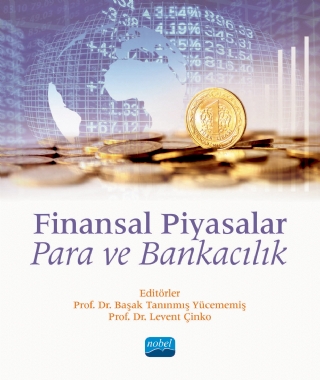
Financial markets, money and banking are among the topics that directly affect our daily life, even in it and arousing curiosity. Because what is learned in this field not only allows the understanding of different views on the execution of economic policy, which is the subject of discussions in the political arena, but also helps a clearer understanding of the economic and financial concepts that are frequently heard in the media. All the topics in this book, which is prepared for the relationship between financial markets, money and banking, are handled with a unifying method, and an analysis systematic in an economic and financial perspective is tried to be developed for the readers.
In this book; in addition to the structure and functioning of the financial markets that make up the financial system, financial institutions and instruments are discussed, the concept of money and its policies are based on theoretical foundations, the place of money and its policies in the financial system is examined, the central bank monetary policy practices are mentioned and the stability of the financial system is emphasized. In addition to these, the theoretical infrastructure related to banking in the financial system has been examined, the development, functions and international activities of banks, which are the most important actors of the system, are discussed, and the activities for the regulation and supervision of the system are examined. These topics in the book reveal the development and change experienced both in the countries of the world and in Turkey.
With the information they will acquire in this book, the readers will have the opportunity to approach and examine the subject with a different perspective and way of thinking.
In this book; in addition to the structure and functioning of the financial markets that make up the financial system, financial institutions and instruments are discussed, the concept of money and its policies are based on theoretical foundations, the place of money and its policies in the financial system is examined, the central bank monetary policy practices are mentioned and the stability of the financial system is emphasized. In addition to these, the theoretical infrastructure related to banking in the financial system has been examined, the development, functions and international activities of banks, which are the most important actors of the system, are discussed, and the activities for the regulation and supervision of the system are examined. These topics in the book reveal the development and change experienced both in the countries of the world and in Turkey.
With the information they will acquire in this book, the readers will have the opportunity to approach and examine the subject with a different perspective and way of thinking.
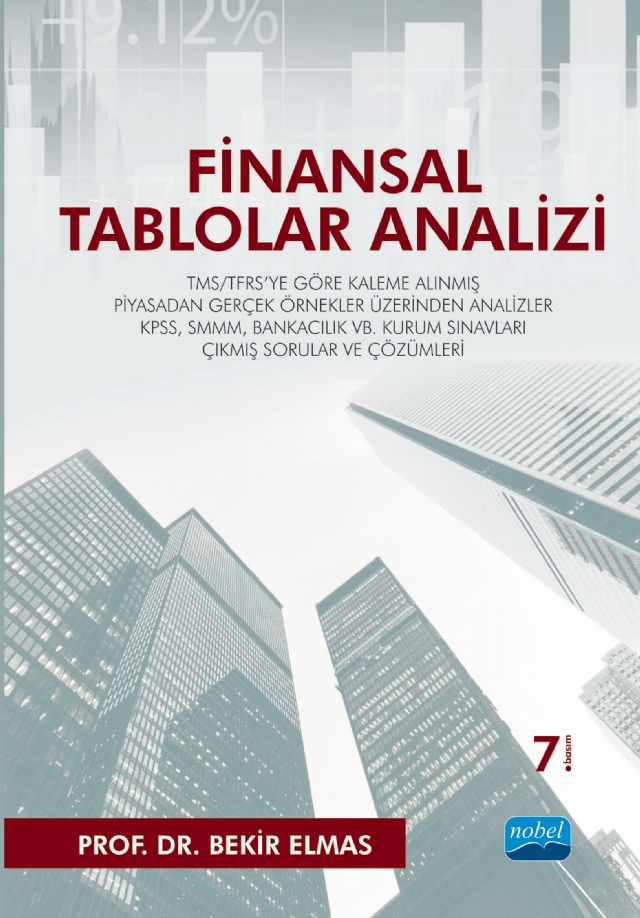
Reading the financial statements and making some judgments about a business by analyzing the financial statements is extremely important for all segments of the business. E.g; managers are aware of the current situation of the company they manage and make plans for the future; partners, to see the status of their companies; Investors, during the process of understanding the situation of the company they are considering to invest and making the investment decision; On the other hand, credit institutions make use of the results of financial analysis while evaluating the loan application of the company. In addition to the sections related to the business we have mentioned, various groups such as other businesses, the state, unions and researchers that have commercial relations with the business also benefit from the results of financial analysis.
There are three main features that distinguish this book from the financial statement analysis books available in the market. The first of these, as stated above, is to include financial statements prepared in accordance with the new practice, Turkish Accounting Standards/Turkish Financial Reporting Standards (TMS/TFRS), not the old practice Uniform Accounting System (TDMS). The second important feature that distinguishes the book from other books is that financial analysis and evaluations are made on the financial statements of two companies operating in Borsa Istanbul (TOFAŞ AŞ and FORD AŞ) instead of imaginary examples. Of course, such an approach will make the analysis and evaluations more realistic. As the third distinguishing feature in the book; KPSS, SMMM, Account Expertise, Banking etc. It can be shown that the questions and solutions in the institution exams are included.
The book consists of four parts. Our aim; in the first part of the book, introducing the financial statements issued by the businesses; in the second part, how to analyze financial statements issued by businesses, that is, to introduce financial analysis techniques; In the third part, it is to introduce some advanced analysis topics that are increasingly important for businesses. In the fourth and last part of the book, there are KPSS, SMMM (Certified Accountant and Financial Advisor), Account Expertise, Banking etc. There are questions and solutions related to institutional exams.
There are three main features that distinguish this book from the financial statement analysis books available in the market. The first of these, as stated above, is to include financial statements prepared in accordance with the new practice, Turkish Accounting Standards/Turkish Financial Reporting Standards (TMS/TFRS), not the old practice Uniform Accounting System (TDMS). The second important feature that distinguishes the book from other books is that financial analysis and evaluations are made on the financial statements of two companies operating in Borsa Istanbul (TOFAŞ AŞ and FORD AŞ) instead of imaginary examples. Of course, such an approach will make the analysis and evaluations more realistic. As the third distinguishing feature in the book; KPSS, SMMM, Account Expertise, Banking etc. It can be shown that the questions and solutions in the institution exams are included.
The book consists of four parts. Our aim; in the first part of the book, introducing the financial statements issued by the businesses; in the second part, how to analyze financial statements issued by businesses, that is, to introduce financial analysis techniques; In the third part, it is to introduce some advanced analysis topics that are increasingly important for businesses. In the fourth and last part of the book, there are KPSS, SMMM (Certified Accountant and Financial Advisor), Account Expertise, Banking etc. There are questions and solutions related to institutional exams.
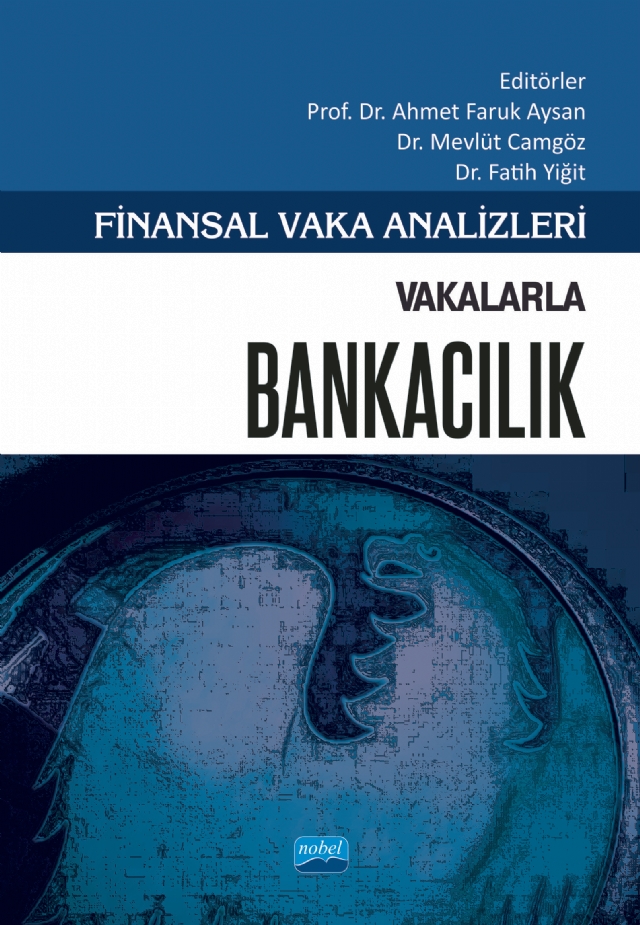
Case studies have a very important function in reconciling theory and facts in subjects such as finance, banking and accounting, and associating lived realities with abstract theories. The case study technique, which has been attracting attention in Western universities for years both as an educational tool and as a research area, unfortunately has not received the value it deserves in Turkey. Aiming to fill the aforementioned gap, this work has a feature that combines theory and reality in banking and provides a deeper understanding to its interlocutors. In the work, rather than mathematical and statistical analyses, theoretical analyzes have been put forward with a broader perspective by associating theory with facts. Thus, the basic philosophy underlying the case technique, the scientific value of the study and the interaction of the work with the audience; simultaneously observed. Rather than mere stories of the cases discussed in the work, theoretical connections were established, important factors that played a role in the development process were conveyed, and the results of the case were analyzed in detail for both scientific and policy makers. Thanks to this approach, a more holistic and reader-friendly study has emerged. In this study, which examines the real developments in Turkey and the world, the following cases are discussed:
• Barclays LIBOR Manipulation
• İhlas Finance
• Bernard L. Madoff
• Deutsche Bank Scandals
• Etibank
• Ege Insurance
• Bankers Trust and Kıdder Peabody
• Agricultural Credit Cooperatives
• Money Foundations
• Dana Gas Sukuk
• Grameen Bank
• Barclays LIBOR Manipulation
• İhlas Finance
• Bernard L. Madoff
• Deutsche Bank Scandals
• Etibank
• Ege Insurance
• Bankers Trust and Kıdder Peabody
• Agricultural Credit Cooperatives
• Money Foundations
• Dana Gas Sukuk
• Grameen Bank

Case studies have a very important function in reconciling theory and facts in business disciplines such as finance, banking and accounting, and explaining lived realities by associating them with abstract theories. The case study technique, which has been attracting attention in Western universities for years both as an educational tool and as a research area, unfortunately has not received the value it deserves in Turkey. Aiming to fill the aforementioned gap, this work has the feature of combining and integrating theory and reality on the fundamental issues of finance theory, giving its interlocutors a deeper understanding. In the work, theoretical analyzes supported by numerical data have been put forward by associating theory with facts rather than mathematical and statistical analyses. Thus, the basic philosophy underlying the case technique, the scientific elements of the study and its interaction with the audience it addresses were simultaneously observed. Rather than a mere story of the cases discussed in the work, theoretical connections were established, important factors that played a role in the development of the cases were conveyed, and the results of the case were analyzed in detail for both scientific and policy makers. Thanks to this approach, a more holistic and reader-friendly study has emerged. In this work, which examines the real developments in Turkey and the world, the following cases are discussed under four main headings.
• Business Finance
XTO Energy
Worldcom
Polly Peck
Do&Co
• Investments and Portfolio Management
2010 Stock Market Crash
Gamestop/Reddit
Pets.Com
Wirecard
• Risk management
Long Term Capital Management
Metallgesellschaft
• Ponzione Chain Systems
Farm Bank
Charles Ponzi
• Business Finance
XTO Energy
Worldcom
Polly Peck
Do&Co
• Investments and Portfolio Management
2010 Stock Market Crash
Gamestop/Reddit
Pets.Com
Wirecard
• Risk management
Long Term Capital Management
Metallgesellschaft
• Ponzione Chain Systems
Farm Bank
Charles Ponzi

The first edition in 2005, the second in 2009, the third in 2013, and now the fourth edition in 2018, "Financial Management Case Studies and Case Studies" has been prepared for use in undergraduate, graduate and doctoral programs at our universities. The number of cases, which was 50 in the first edition, 62 in the second edition, and 71 in the third edition, was arranged over 104 cases, including 33 cases in undergraduate level, 71 in group B at graduate and doctorate level in the fourth edition, and also 71 group B case studies (cases) were updated.
In order to understand the problems of the financial manager and the role of finance theory correctly and to be able to make accurate financial decisions about the company in today's world dominated by extreme competition and high capital costs, our students and readers should closely see financial management problems taken from real life and turned into case studies and They need to find solutions to these problems. According to our research, students perceive, formulate, prepare for a solution, take the right decision by solving, and have difficulty in risk management, a financial problem they encounter in real life, starting from the textbooks or small financial problems in the books. For this reason, these case studies are; It is prepared for our readers to see themselves in the virtual environment of the company, to penetrate deeply into financial management problems, to develop alternative solutions and to improve their ability to make the right decision, that is, it acts as a finance simulator for financiers.
In order to understand the problems of the financial manager and the role of finance theory correctly and to be able to make accurate financial decisions about the company in today's world dominated by extreme competition and high capital costs, our students and readers should closely see financial management problems taken from real life and turned into case studies and They need to find solutions to these problems. According to our research, students perceive, formulate, prepare for a solution, take the right decision by solving, and have difficulty in risk management, a financial problem they encounter in real life, starting from the textbooks or small financial problems in the books. For this reason, these case studies are; It is prepared for our readers to see themselves in the virtual environment of the company, to penetrate deeply into financial management problems, to develop alternative solutions and to improve their ability to make the right decision, that is, it acts as a finance simulator for financiers.
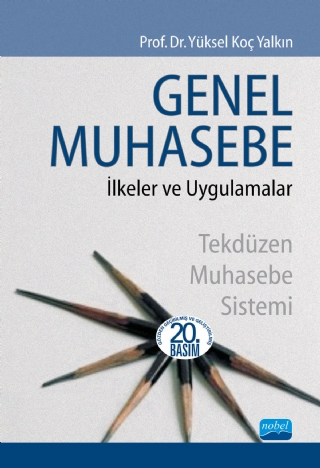
In this book, accounting issues are handled in accordance with the Uniform Accounting System, which has been implemented in our country since January 1, 1994. In this direction, the concepts, principles, financial statements and chart of accounts included in the Uniform Accounting System have been thoroughly examined. In addition, while the functioning of the accounts is discussed, each account is first revealed with its theoretical features, scope and operating rules. In the second phase, the features, scope and operating rules of each account according to the Uniform Accounting System in our country (Accounting System Application General Communiqués) were examined.
The book, which is supported by both theoretical principles and Uniform Accounting System principles and application methods with numerous examples, includes the necessary corrections and additions to the Accounting Standards as well as the principles in the changed Tax Laws and related Communiqués. The book, which includes problems based on exam questions for the benefit of students, will also benefit those who are interested in the field of teaching and practice.
The book, which is supported by both theoretical principles and Uniform Accounting System principles and application methods with numerous examples, includes the necessary corrections and additions to the Accounting Standards as well as the principles in the changed Tax Laws and related Communiqués. The book, which includes problems based on exam questions for the benefit of students, will also benefit those who are interested in the field of teaching and practice.

Assurance services are independent professional services that improve the quality of information for information users. It is essential that the information provided in assurance services is presented by an independent, honest and impartial professional. The reason why the concept of independence is of such great importance is that the information provided after the assurance service becomes more valuable.
Assurance services are services offered in the market by independent auditors (CPA and CPA) or various other professionals. For years, independent auditors have provided many assurance services regarding financial and non-financial information of enterprises. Assurance services are services that must be provided in accordance with certain international standards, as in independent auditing. These standards are the guide in the delivery of work and form the basis of quality assurance service work. In our book, the process of each assurance service engagement is illustrated by way of planning, evidence gathering, and reporting, based on standards for auditing assurance services.
When the legal regulations that shape assurance services in our country are examined, it is seen that there is a structuring institutionally based on regulatory authorities (such as KGK, CMB, BRSA, EMRA). In this structure, Law No. 3568 is a framework law, and it is the main source in terms of regulations regarding assurance services after both regulatory institutions and new legal regulations (such as concordat).
In our book; The issue has been made more understandable and applicable since the standards on assurance services auditing are handled separately in each section, supported by application examples. Our book, in which the concept of assurance services is handled within the framework of the legal regulations and Assurance Services Standards in our country, by following the stages of the assurance services process, has content that can be easily understood and benefited by professional accountants/candidates and university students who want to advance in the accounting profession.
Assurance services are services offered in the market by independent auditors (CPA and CPA) or various other professionals. For years, independent auditors have provided many assurance services regarding financial and non-financial information of enterprises. Assurance services are services that must be provided in accordance with certain international standards, as in independent auditing. These standards are the guide in the delivery of work and form the basis of quality assurance service work. In our book, the process of each assurance service engagement is illustrated by way of planning, evidence gathering, and reporting, based on standards for auditing assurance services.
When the legal regulations that shape assurance services in our country are examined, it is seen that there is a structuring institutionally based on regulatory authorities (such as KGK, CMB, BRSA, EMRA). In this structure, Law No. 3568 is a framework law, and it is the main source in terms of regulations regarding assurance services after both regulatory institutions and new legal regulations (such as concordat).
In our book; The issue has been made more understandable and applicable since the standards on assurance services auditing are handled separately in each section, supported by application examples. Our book, in which the concept of assurance services is handled within the framework of the legal regulations and Assurance Services Standards in our country, by following the stages of the assurance services process, has content that can be easily understood and benefited by professional accountants/candidates and university students who want to advance in the accounting profession.
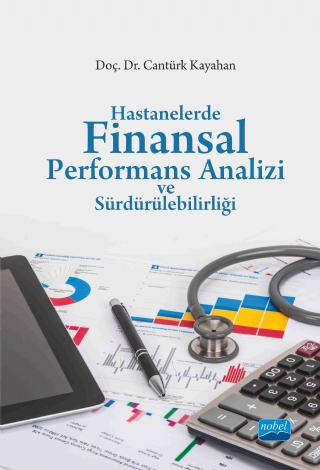
The demand for education in the health sector is increasing day by day. As a former health worker, my main purpose in preparing such a book is to show how people in managerial or managerial positions other than doctors and allied health personnel, or candidates, as well as medical service managers, can make a better contribution to hospital performance. Because financial performance management provides an overview of hospital management and imposes responsibility on all managers, not just finance managers. In addition to these, the harmonious work of more than one professional staff within the organizational structures of hospitals is also of great importance in terms of patient health, hospital performance and country interests.
The general acceptance of hospital administrators by hospital personnel is possible with their analytical intelligence and solution-oriented approach as well as their abilities and merits. Managers should put themselves in the shoes of patients if they want to run a good and successful hospital, and should make it their life philosophy to treat patients and their subordinates the same way they would like to be treated. Thus, the corporate hospital management approach can be assimilated at every level from the bottom to the top. As a result, it is necessary to see the need for the subject in order to write and write a book. You must know what the student needs and why he or she should learn. In this study, the “Data Envelopment Model”, which is frequently used in the financial performance analysis of hospitals, was applied step by step and a road map was created in the Appendix so that students could make applications more easily. For a better future, we expect practical and theoretical studies from our students and academicians that will contribute to the field...
The general acceptance of hospital administrators by hospital personnel is possible with their analytical intelligence and solution-oriented approach as well as their abilities and merits. Managers should put themselves in the shoes of patients if they want to run a good and successful hospital, and should make it their life philosophy to treat patients and their subordinates the same way they would like to be treated. Thus, the corporate hospital management approach can be assimilated at every level from the bottom to the top. As a result, it is necessary to see the need for the subject in order to write and write a book. You must know what the student needs and why he or she should learn. In this study, the “Data Envelopment Model”, which is frequently used in the financial performance analysis of hospitals, was applied step by step and a road map was created in the Appendix so that students could make applications more easily. For a better future, we expect practical and theoretical studies from our students and academicians that will contribute to the field...
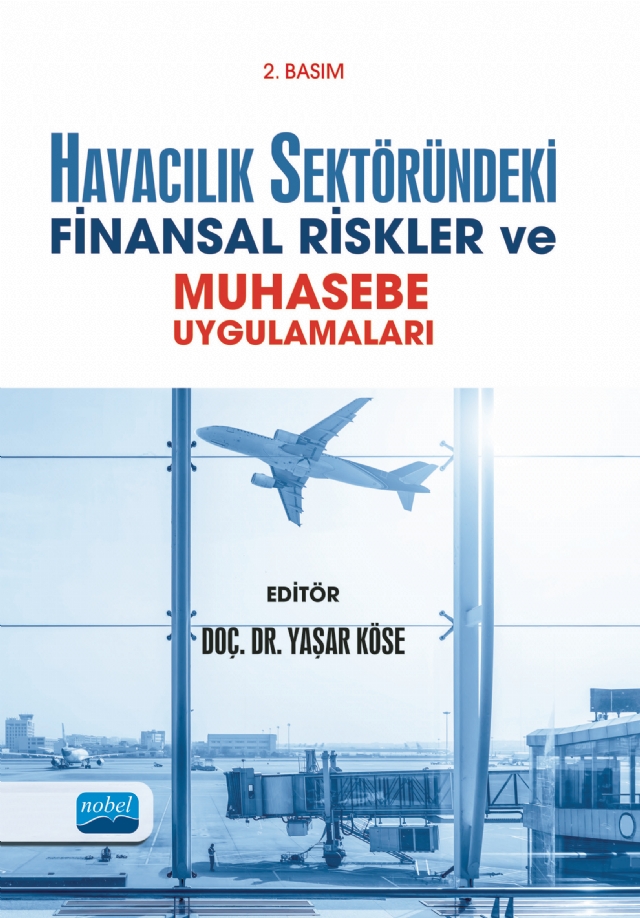
In today's world, where globalization is experienced rapidly, the importance of the aviation industry is increasing both in our country and in the world. In terms of finance, the aviation sector is the economic, political, social, military, etc., which is experienced on a local and international scale, where large capital investments are made. It is a sector that is simultaneously affected by developments and includes some risks that need to be managed.
This book consists of six chapters covering financial risks in the aviation industry and related accounting practices. The authors of the departments are academicians who are competent in their fields and have evaluated their own subjects scientifically in the light of current developments.
Hoping that the book will be useful for scientific studies related to aviation and the personnel involved in the aviation sector...
This book consists of six chapters covering financial risks in the aviation industry and related accounting practices. The authors of the departments are academicians who are competent in their fields and have evaluated their own subjects scientifically in the light of current developments.
Hoping that the book will be useful for scientific studies related to aviation and the personnel involved in the aviation sector...

The science of economics is closely related to the fields of finance and banking in terms of dealing with the optimum distribution of resources, and the regions where their circles intersect are expanding day by day following the global crises. In these discussed subjects, it has been tried to see the big picture, sometimes starting from small pieces. Trees were analyzed in detail, and application experiences were shared with readers. Sometimes, starting from a large piece, it was traveled to small pieces. It has progressed in the way of speaking to the reader whenever necessary, but meticulous attention has been paid to supporting comments and thoughts with scientific reality and resources. The book begins with basic macroeconomic issues such as production, consumption, investment, foreign trade and inflation it is complemented by various comments and assessments on monetary economics, central banking, finance and banking. This book contains many topics that appeal to university students, those who work in business life and those who want to improve themselves in these areas.

The partial reserve system, which we can call the basis of modern finance, has been the subject of discussion from past to present due to its weak structure, the role it played in economic instability and the problems it created. This interest-based system, which ensures that most of the money supply is dematerialized, has led to a macro-ribâ system that envelops economic life. The full reserve system, which was developed as an alternative to this system, could not find its place in practice. From the point of view of Islamic economics, the fact that the current system is riba-oriented and causes an unfair distribution of resources has necessitated the evaluation of the alternatives put forward from this perspective. The fractional reserve system operates based on confidence that commercial banks and central banks will provide sufficient liquidity when needed, and thus in essence it is prone to financial crises.
is weak and fragile. From this perspective in the book, the problems that are claimed to arise in economies with the discovery of fractional reserve banking are examined, the applicability of full reserve banking and how sufficient it is for a solution are examined, and the suitability and drawbacks of both systems in terms of Islamic economics are discussed. In addition, the effect of both banking systems on economic stability was compared using an agent-based simulation model.
is weak and fragile. From this perspective in the book, the problems that are claimed to arise in economies with the discovery of fractional reserve banking are examined, the applicability of full reserve banking and how sufficient it is for a solution are examined, and the suitability and drawbacks of both systems in terms of Islamic economics are discussed. In addition, the effect of both banking systems on economic stability was compared using an agent-based simulation model.

Murabaha contract is one of the most applied and discussed transactions in the interest-free financial system. In the process that has been going on since the 1970s, when interest-free banking began, the subject of murabaha, which has been in the field of interest of many scientific disciplines, especially fiqh and economics, has been an issue that has attracted the attention of the academic community as well as being important for the real sector. The main purpose of this study is to deal with the historical development of such a contract, to follow the stages it went through and to examine the debates about the problematic points it has.
Murabaha, which is known as "production support" and "corporate and individual financing support" in practice in Turkey, is a larger-scale and most widely used transaction today, has common issues with other investment-financing models, as well as many different The fact that it contains a problem point, is the most discussed transaction in the modern period, and shows how a classical contract was modernized are the factors that make this contract important. Murabaha fiqh, economic, social, etc. This study, which aims to address various aspects with a critical and holistic perspective and to reveal the course of reasoning and judgment-making activities in modern Islamic economics problems based on the existing literature, is a candidate to fill an important gap in the literature.
Murabaha, which is known as "production support" and "corporate and individual financing support" in practice in Turkey, is a larger-scale and most widely used transaction today, has common issues with other investment-financing models, as well as many different The fact that it contains a problem point, is the most discussed transaction in the modern period, and shows how a classical contract was modernized are the factors that make this contract important. Murabaha fiqh, economic, social, etc. This study, which aims to address various aspects with a critical and holistic perspective and to reveal the course of reasoning and judgment-making activities in modern Islamic economics problems based on the existing literature, is a candidate to fill an important gap in the literature.
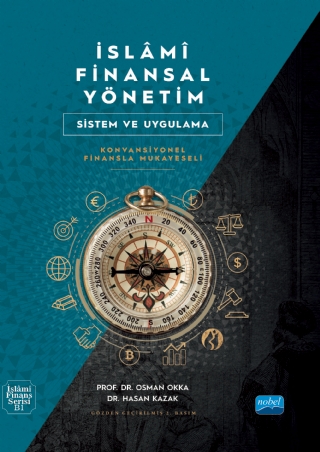
Today, due to the rapid development of the Islamic finance sector and the fact that Islamic funds are approaching 3 trillion dollars, interest in this field has increased gradually, on the one hand, publications in this field have increased, on the other hand, Islamic financial institutions have become institutionalized to a large extent. While all these developments were taking place, the aspect of Islamic finance towards companies together with institutions operating in money and capital markets - that is, studies on the application of national and international companies to ordinary, collective, commandite, limited, joint-stock and holding companies - remained relatively behind. This book has been prepared to meet this need, covering almost all areas of financial management and in comparison with conventional finance. For this reason, the book has an intermediate upper structure.
In the book, the basic principles of finance related to Islamic finance within the framework of Islamic law are presented to the reader in a systematized manner in a systematic way, in comparison with conventional finance, and it is shown in detail how Islamic finance can be applied in all areas of the activities of companies in real life. Thus, it is aimed for the reader to gain knowledge in a structure that can think financially with a numerical and analytical method and solve the financial problems of the company by producing policies in accordance with Islam. Case studies of Islamic finance in the 22nd chapter, that is, case studies, added a different dimension to the book.
In the book, the basic principles of finance related to Islamic finance within the framework of Islamic law are presented to the reader in a systematized manner in a systematic way, in comparison with conventional finance, and it is shown in detail how Islamic finance can be applied in all areas of the activities of companies in real life. Thus, it is aimed for the reader to gain knowledge in a structure that can think financially with a numerical and analytical method and solve the financial problems of the company by producing policies in accordance with Islam. Case studies of Islamic finance in the 22nd chapter, that is, case studies, added a different dimension to the book.

(B-1) Islamic Financial Management: System and Practice (Compared with Conventional Finance) in the first book of the series, what Islamic finance is and its application in today's modern companies (ordinary, collective, commandite, limited, joint-stock, holding companies) by taking into account the Islamic rules on this subject. shape was examined in comparison with conventional firms. Rational behavior and behavior do not change in conventional or Islamic finance. Every person or company tries to act, win, act efficiently in order to be optimal (the best); What is different is that the Islamic financier and manager must act and be successful by taking into account the prohibited and unethical rules according to Islam. As it is known, conventional companies; According to Islam, all kinds of interest, deceitful, morally corrupting, defective, adulterous, causing usurpation of rights, harmful to society, etc., which are considered haram. If they do not engage in activities, they become an Islamic firm. If Islamic companies carry out their activities without considering the harams and prohibitions of Islam, they also turn into conventional companies. Switching between companies is that simple. If an Islamic firm has engaged in haram activities, it first tries to prevent them and at the end of the period, it tries to remove the haram revenues from the firm. In order not to make mistakes, the Islamic financial manager has to know and apply the rules of both conventional and Islamic finance.
In today's economic system, where extreme competition and high capital costs dominate; In order to understand the problems of financial managers and the role of Islamic finance correctly, and then to make the right financial decisions about the company, they need to see real-life financial management problems closely and produce solutions on these problems. These are case studies; It has been prepared to enable our readers to see themselves in the virtual environment of the company, to penetrate deeply into financial management problems, to produce alternative solutions within the framework of Islamic rules and to improve their ability to make the right decision. The book acts as a finance simulator for financiers and those who want to become financiers, as well as company managers. We hope that this book titled (B-2) Islamic Financial Management Case Studies and Case Studies (Case Analysis), which covers 50 case studies, will be useful to you.
In today's economic system, where extreme competition and high capital costs dominate; In order to understand the problems of financial managers and the role of Islamic finance correctly, and then to make the right financial decisions about the company, they need to see real-life financial management problems closely and produce solutions on these problems. These are case studies; It has been prepared to enable our readers to see themselves in the virtual environment of the company, to penetrate deeply into financial management problems, to produce alternative solutions within the framework of Islamic rules and to improve their ability to make the right decision. The book acts as a finance simulator for financiers and those who want to become financiers, as well as company managers. We hope that this book titled (B-2) Islamic Financial Management Case Studies and Case Studies (Case Analysis), which covers 50 case studies, will be useful to you.
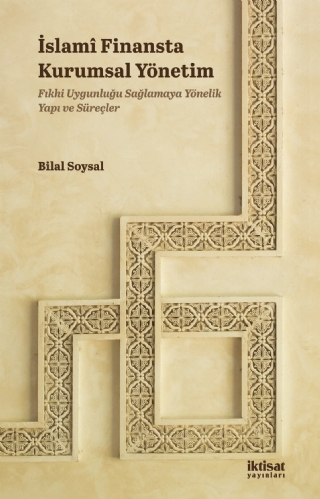
For an Islamic financial institution to survive and grow, it is essential that all stakeholders adopt a corporate governance approach to increase their trust in the institution. An effective corporate governance is necessary for an Islamic financial institution to manage the risk of non-compliance with Fiqh principles and rules, to grow in a healthy way, and to properly protect the interests of all stakeholders. In this context, an important part of corporate governance in Islamic financial institutions is an effective "Fiqh Compliance Management System" aimed at ensuring the compliance of activities with fiqh principles and rules. This book explains the Fiqh Compliance Management System in Islamic financial institutions in detail within the framework of literature and international standards, and the approaches of countries to the subject. it reflects in the context of legal regulations and reveals the situation of Turkey compared to other countries.
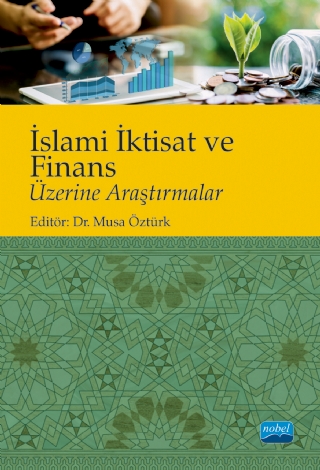
The problems we face today, where perhaps the fastest transformations in the history of humanity are experienced, trigger the search for a new normal, system and order in order to protect the current gains and to ensure an inclusive and sustainable growth and development process. These searches, which take place in almost every field, especially in socioeconomic and political fields; re-understanding the old, the re-discovery of the new, and the examination of the interaction between the old and the new. From an economic point of view as a result of these searches, discussions on the new economic system are being mobilized, and the problems of what will replace the old systems, how the new order will function, and how to define the roles of these new normally known economic actors are questioned -objectively and normatively. One of the efforts made in this context is the studies carried out within the scope of Islamic Economics and Finance, which is the richest in terms of experience, originality and consistency, and the impact/repercussion of these studies is increasing and expanding day by day across the world.
In order to support this effect/echo, this book, which was initiated by using the blind arbitrator process, begins by examining the subject of interest, which functions as litmus paper in terms of economic thought and systems. After the interest topic, there are sections on zakat, the state, solidarity institutions and participation banks, respectively. Within the scope of Islamic Finance; financing models, blockchain technology, behavioral finance and investment attorneyship are examined, followed by applied studies on the economy-finance relationship. Thus, it has been tried to contribute to the efforts of humanity in general and Turkey in particular to get rid of the systematic bottlenecks and deadlocks, and to the aims of understanding the old, discovering the new and examining the old-new interaction within the scope of Islamic Economics and Finance.
In order to support this effect/echo, this book, which was initiated by using the blind arbitrator process, begins by examining the subject of interest, which functions as litmus paper in terms of economic thought and systems. After the interest topic, there are sections on zakat, the state, solidarity institutions and participation banks, respectively. Within the scope of Islamic Finance; financing models, blockchain technology, behavioral finance and investment attorneyship are examined, followed by applied studies on the economy-finance relationship. Thus, it has been tried to contribute to the efforts of humanity in general and Turkey in particular to get rid of the systematic bottlenecks and deadlocks, and to the aims of understanding the old, discovering the new and examining the old-new interaction within the scope of Islamic Economics and Finance.

Career planning refers to the strategy one uses to set career goals and the ways to reach those goals. Having a career plan is critical for candidates who want to be successful not only in business but in all areas of life. Career planning is a multi-stage process in which career stages must be comprehensively addressed and executed in order for the candidate to achieve the success they want to achieve. With career planning, the candidate will have the chance to think in advance about alternative ways and routes for his future professional life, so that he will be able to construct his career journey on a “scenario-based” basis. A thoughtful career plan will both shape social life and provide a roadmap for the professional future. Thus, it will be possible to make informed choices about current job opportunities and potential future career opportunities. This book has been prepared with the contributions of expert academics, aimed at candidates, academics and professionals in business life who are looking for a guide both to see the current opportunities in their career journey and to explore potential career opportunities in the future. In each section, besides theoretical information, success stories of real people in their career journeys, advisory opinions given by experts in the field to candidates related to the subject, and additional reading suggestions for readers who want to deepen in the relevant section, as well as movie recommendations are given. We wish you a pleasant reading, hoping that it will be a useful guide for all readers.

In this book, the changing economic financial conditions in the Ottoman Empire after the declaration of the Tanzimat Ferman, both in terms of its content and social, legal and economic influence, were shaped around the idea of establishing a bank, which was one of the new practices for that period. As a matter of fact, the idea of 'establishing a state bank' for the Ottomans and the dynamics and intellectual infrastructure of its implementation is an important economic history event that needs to be examined.
This book in your hand examines the organizational characteristics of Dersaadet Bank, the first example of the Ottoman banking activities started in the second half of the 19th century, and the economic conditions of the period in which it started to operate, as well as the financial and commercial dimensions of its mission, with the help of Ottoman archive sources. This study has tried to show how the trade and business networks of the Tanzimat Period were shaped through financial markets, the nature of the entrepreneurial networks owned by the partnerships of merchants and bankers, and what features they contain in this sense, through the records of Dersaadet Bankası. This book, which can be considered as an essay on the purpose of the bank's establishment, the close relationship of the policy transactions it carried out with foreign trade and the Ottoman monetary system, and the revealing of the Ottoman entrepreneurial business networks through this experience, gives the reader a thematic overview of the 'Ottoman History of Economics, Business and Finance' literature. offers pain.
This book in your hand examines the organizational characteristics of Dersaadet Bank, the first example of the Ottoman banking activities started in the second half of the 19th century, and the economic conditions of the period in which it started to operate, as well as the financial and commercial dimensions of its mission, with the help of Ottoman archive sources. This study has tried to show how the trade and business networks of the Tanzimat Period were shaped through financial markets, the nature of the entrepreneurial networks owned by the partnerships of merchants and bankers, and what features they contain in this sense, through the records of Dersaadet Bankası. This book, which can be considered as an essay on the purpose of the bank's establishment, the close relationship of the policy transactions it carried out with foreign trade and the Ottoman monetary system, and the revealing of the Ottoman entrepreneurial business networks through this experience, gives the reader a thematic overview of the 'Ottoman History of Economics, Business and Finance' literature. offers pain.

The most significant aim of the businesses, which are an integral part of the economic system, is to create value maximization. The financial performance of businesses plays a key role in achieving this aim. Financial performance analysis is an effective criterion for businesses to achieve their goals, to adapt to changing conditions in the market, to improve the way of doing businesses and to be able to take measures against possible problems.
In this regard, this book, which includes the analysis of the financial performances of companies in several sectors through various statistical methods, has an important value in terms of including the studies and evaluations of many academicians who have doctoral degrees in their field and work in different universities.
In this regard, this book, which includes the analysis of the financial performances of companies in several sectors through various statistical methods, has an important value in terms of including the studies and evaluations of many academicians who have doctoral degrees in their field and work in different universities.

In the author's 6-book statistics series, this book, which is an introduction to statistics and addresses the basic concepts of statistics, probability and probability distributions, appealing to a wide audience and in a plain language, has been updated and presented to the readers after the first edition has been exhausted and a new printing request has been received for years.
The topics covered are written in a plain language that the reader can understand. Answering the why question for each concept and method, as well as the how question, helps those who are interested in the subject to decide more easily which method to use in which situation. Numerous original examples and detailed solutions in the book provide great convenience in understanding the subjects.
Students, researchers and decision makers who are interested in statistics should benefit from this book or a similar book containing the same topics at the beginning, and should learn probability and probability distributions as well as descriptive statistics.
The topics covered are written in a plain language that the reader can understand. Answering the why question for each concept and method, as well as the how question, helps those who are interested in the subject to decide more easily which method to use in which situation. Numerous original examples and detailed solutions in the book provide great convenience in understanding the subjects.
Students, researchers and decision makers who are interested in statistics should benefit from this book or a similar book containing the same topics at the beginning, and should learn probability and probability distributions as well as descriptive statistics.

Indirect or intermediary financing plays a vital role in today's contemporary financial systems. Even in directly financed markets, it is often not possible for market participants to trade individually and they need to get services from specialized financial intermediaries. Thus, the roles and activities of financial intermediaries have increased more than ever before. It is well known to those who are familiar with the subject that banks have always had a very important place among financial intermediaries. It is also well known that commercial banks or deposit banks play a dominant role among the types of banks such as investment banks, development banks or participation banks.
It is observed that commercial banks, which are the leading players of bank-based financial systems, are increasingly dominating market-based financial systems. Although investment banks have a significant weight in market-based systems, it is seen that commercial banks have increasingly penetrated into this area in the last two decades, with the effect of financial liberalization trends. The same trend is strongly felt in other areas of finance, particularly in the insurance sector, with practices such as bancassurance.
One of the most important reasons why commercial banks are in a superior position even in different types of financial systems is that they turn into supermarkets of financial products and services over time, suppressing other types of intermediation in the system by using their space and economies of scale advantages. Today, customers who demand financial products and services go to meet all their needs through commercial banks, as they save a lot of time and money. Indeed, with their widespread branch networks, internet branches, advanced technology-based applications such as mobile and telephone banking, commercial banks can serve their customers on a 24/7 basis, almost anywhere.
This book covers the basic principles and theories of the management of commercial banks, which have a central role in today's contemporary financial systems and have now become almost the dominant type of intermediation. Within the scope of financial management principles of banks; Topics such as the management of the bank firm and its branches, the fund raising and utilization strategies of banks, pricing and marketing strategies specific to banks are covered. Written at undergraduate and graduate levels, the book is a resource that can be easily used at the associate degree level, ignoring some technical issues. In addition, we believe that the book will be useful in providing a general vision to readers who are interested in banking or who are just starting out in this profession.
It is observed that commercial banks, which are the leading players of bank-based financial systems, are increasingly dominating market-based financial systems. Although investment banks have a significant weight in market-based systems, it is seen that commercial banks have increasingly penetrated into this area in the last two decades, with the effect of financial liberalization trends. The same trend is strongly felt in other areas of finance, particularly in the insurance sector, with practices such as bancassurance.
One of the most important reasons why commercial banks are in a superior position even in different types of financial systems is that they turn into supermarkets of financial products and services over time, suppressing other types of intermediation in the system by using their space and economies of scale advantages. Today, customers who demand financial products and services go to meet all their needs through commercial banks, as they save a lot of time and money. Indeed, with their widespread branch networks, internet branches, advanced technology-based applications such as mobile and telephone banking, commercial banks can serve their customers on a 24/7 basis, almost anywhere.
This book covers the basic principles and theories of the management of commercial banks, which have a central role in today's contemporary financial systems and have now become almost the dominant type of intermediation. Within the scope of financial management principles of banks; Topics such as the management of the bank firm and its branches, the fund raising and utilization strategies of banks, pricing and marketing strategies specific to banks are covered. Written at undergraduate and graduate levels, the book is a resource that can be easily used at the associate degree level, ignoring some technical issues. In addition, we believe that the book will be useful in providing a general vision to readers who are interested in banking or who are just starting out in this profession.

When we look at the world in general, not only conventional banks but also interest-free banks finance international (foreign) trade. Conventional banks can finance all kinds of legal goods or services with interest. Interest-free banks, on the other hand, can only mediate for goods that are halal to trade while financing international trade, and they can provide financing to international traders only with interest-free financing products. This book in your hand focuses on various interest-free financing products of interest-free banks and which interest-free financing products can support international traders. Thanks to this book, the reader will have the opportunity to learn about the development of international trade in our nearby geography, to get to know the interest-free institutions that support international trade, the types of contracts used in interest-free financing, and the current interest-free international trade finance products that have applications around the world.

Today, econometrics has become one of the indispensable analysis tools of economics. All kinds of approaches within the scope of economic theory are subject to econometrics. One of the most important reasons for this is that this branch of science is increasingly dealing with numbers, and the second is the rapid development in computer technology. Tests and predictions of the most complex theories are finalized in a very short time by computer programs. Within the framework of these observations, this book in your hand aims to make econometric analysis, which has become boring with numbers, cute and understandable through computer programs. It is thought that such a study will be very useful for those who are too afraid of mathematics and numbers. In the book, a number of programs (PcGive, PcFiml, etc.) operating under EViews, SPSS, MINITAB, and GiveWin, which are widely used in the world and in Turkey, are included.

The power of financial information is also closely related to the concepts of management and sustainability. Because the managers' ability to build a better future depends on creating a good financial infrastructure for their businesses. This book is a study of finance concepts and applications for managers. Especially in today's world where global trends accelerate and come to the fore, many issues such as economic indicators, interest rates, investments, financial analyzes, risk management and the economic outlook of the world from past to present, which should be focused and monitored by managers, have been tried to be created and explained with a detailed inquiry. Let's not forget that the future will come one day. For this, our young people, who will be the architects of the future, and the success-oriented managers of today's world, need applications enriched with a strong theoretical perspective more than ever. We both feel sad and think that we have lost our future, especially when we see that projects with poor financial infrastructure are lost at the first difficulty encountered. Ultimately, one of the things every manager should focus on is a strong financial plan and a cash flow continuity that can work effectively for every eventuality. It should not be forgotten that everyone can be a manager today and in the future, but those who develop themselves with a leader-oriented and knowledge-based understanding will be those who are remembered and left a mark in the memory of the institution. Maybe you can manage your financial risks and take strategic steps for a better future with this book.

Budgeting process and planning systems in businesses have a great importance in management accounting practices. Because business budgets are a management planning. Operating budgets provide the management with the opportunity to confront and solve all the problems that the organization is likely to face in the future. Thus, business administrations try to keep the effects of financial and non-financial problems they may encounter at the lowest level.
When the operating budgets are prepared correctly; (1) increasing efficiency by ensuring the effective use of resources, (2) increasing profitability with the efforts to achieve strategic goals, (3) timing of financial plans and liquidity success, (4) reporting targets between departments or departments and deviations from these targets at the end of the period. provides performance management.
When the operating budgets are prepared correctly; (1) increasing efficiency by ensuring the effective use of resources, (2) increasing profitability with the efforts to achieve strategic goals, (3) timing of financial plans and liquidity success, (4) reporting targets between departments or departments and deviations from these targets at the end of the period. provides performance management.
